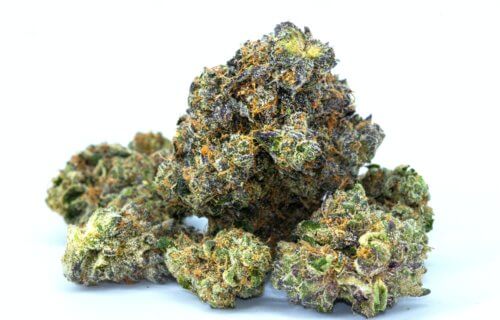PULLMAN, Wash. — From smoking, to drinking, to poor diet choices, there are many things that negatively impact a pregnancy. A study is adding to that list, saying regular cannabis use may have serious side-effects that last into adulthood for that child. Researchers at Washington State University find offspring of regular cannabis users experience long-term cognitive weaknesses, asocial behavior, and anxiety.
“The reality of cannabis research is there’s not a lot of it,” says study first author Halle Weimar in a university release. “This research helps get information out to women so they can make an educated decision that is best for them.”
Researchers examined how continual exposure to cannabis vapor affected pregnant rats and their developing children after birth. Those studies reveal the offspring exposed to cannabis in the womb went on to make more errors during basic cognitive tests for lab rats. These rats also displayed less social behavior and more anxiety when placed in a new environment.
Recreating changes in society
Weimar says this is the first study utilizing e-cigarette technology to expose expecting rats to cannabis throughout their pregnancies. With the number of states across America relaxing marijuana restrictions, the study attempted to see how more mothers using these new products would affect their children.
“The idea was to use a more clinically relevant model to mirror how humans use cannabis, specifically how pregnant women use cannabis,” Weimar adds.
Study authors also gave the pregnant rats propylene glycol vegetable glycerol mixture. This substance is commonly found in vape juice. The rats were given all of these products twice a day in one-hour sessions during their gestation.
Cannabis can have long-lasting trouble for offspring
The study warns the impact of marijuana use isn’t just a temporary side-effect. The results reveal these changes tend to stick with rats throughout their lives.
Researchers trained the newborn rats in a lever and light cue test. Rats had to figure out the strategy behind a specific light cue and then match it to the correct lever to press. After their training, the rats were then forced to change their strategy and ignore the light cue during the actual test. Researchers say this helped to measure each rat’s cognitive flexibility.
“While rats eventually caught on, those whose mothers were exposed to cannabis were more likely to revert to the old pattern and make regressive errors,” Weimar reports. “They also took more trials to learn the rules.”
Young male and female rats from mothers exposed to cannabis engaged in much less play behavior as well. Males in particular tended to isolate themselves from social interactions with other rats. Entering adulthood, these rats became increasingly anxious when placed in a new, elevated maze with both open and closed wings. Adult rats from cannabis-exposed mothers were less likely to explore their new environment.
“They tend to feel safer in closed arms as opposed to rats that are less anxious and willing to venture into open spaces and take more risks,” adds the graduate student in the university’s neuroscience program.
A baby’s behavior changes too
While the long-term effects are concerning, researchers add their study revealed immediate impacts as well. Newborn rats from cannabis-exposed mothers made over 100 more ultrasonic vocalizations compared to babies with no cannabis exposure. These vocalizations are basically the same as a human baby’s cries for their mother.
“It’s pretty noteworthy because this is one of the only tests you can do that looks at emotional reactivity in neonates and they were far more reactive than the other groups,” Weimar says.
The study appears in the journal Neuropharmacology.
